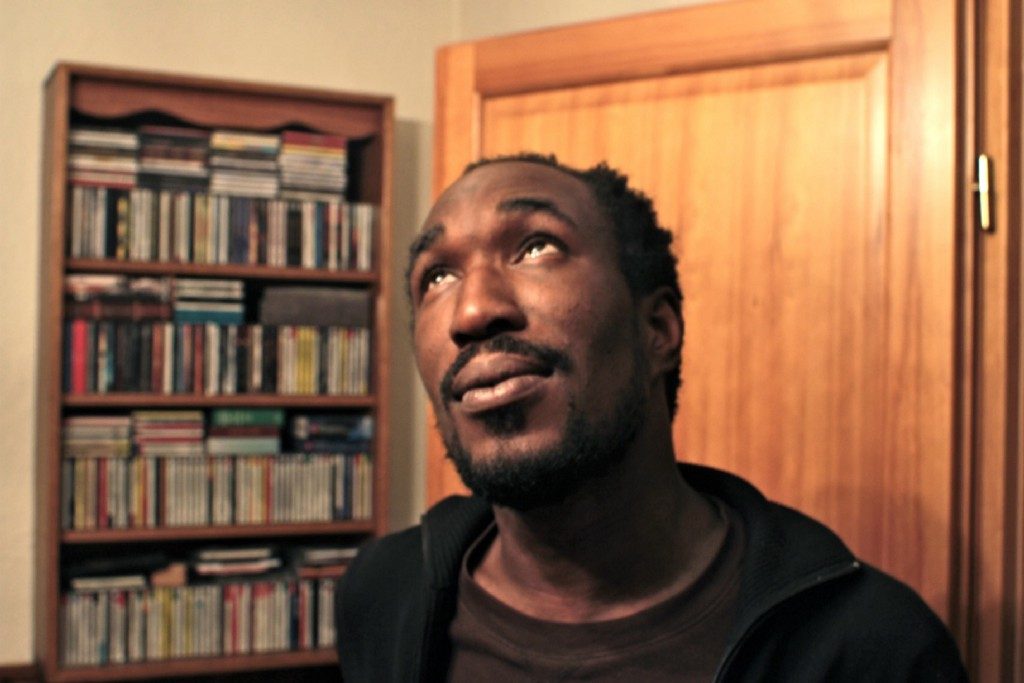Anais Huerta is the co-creator of Amaina Films production company in Mexico City, where she has produced a range of documentaries. She previously directed “Rehje,” an award-winning feature documentary about the life of an indigenous woman in Mexico which screened at more than 70 film festivals across the world.
“David. The Return To Land” will premiere at the 2018 Full Frame Documentary Film Festival on April 6.
W&H: Describe the film for us in your own words.
AH: The film is about the need to know our roots in order to feel better about ourselves, and be more sensible, and more conscious. David was born in Haiti but he was adopted by a Jewish woman in France. His trip to Haiti gives him the chance to recover his Black identity.
W&H: What drew you to this story?
AH: David has been my best friend since we were teenagers — we talked a lot about our different origins and identity issues. This film is somehow the result of those intense talks, and the frustration we experienced in the suburbs of Paris at the lack of recognition of the complexity of identities in our generation, and specifically in the face of the conservative and authoritarian idea of what it means to be “French.”
W&H: What do you want people to think about when they are leaving the theater?
AH: I hope this movie will allow people to think about their different origins and their families, and to be proud of them. I hope mixed — truly mixed — societies will be more tolerant and less racist.
We have to recognize each other as part of one human species and mix together! Races are an ideological invention.
W&H: What was the biggest challenge in making the film?
AH: It was hard to find the right amount of distance with David, and his family — to know how far I could go in talking about their problems, and their wounds, without hurting them.
W&H: How did you get your film funded? Share some insights into how you got the film made.
AH: I live and work in Mexico, and the Mexican Film Institute financed 80 percent of the film production. The additional 20 percent was covered by our own funds in Amaina Films, our production company.
I tried to find funds in France but couldn’t get the support.
W&H: What does it mean for you to have your film play at Full Frame?
AH: It’s very important for us to be at Full Frame because I know that United States audiences will see this movie with their own sense of identity. I’m interested to know how people will react here in North Carolina, and with regard to skin color — to be black in the United States is not the same experience as it is in France.
W&H: What’s the best and worst advice you’ve received?
AH: The best advice was my own intuition: to carry on despite difficulties.
The worst advice: During the edit, a friend told me to disappear in the film. I think it was important to see that I am David’s friend.
W&H: What advice do you have for other female directors?
AH: To believe in themselves. If we think it’s impossible to do things, then we will not do anything — and we can do it. We need to see movies made by women, and movies made by black people, Native people, etc, because we are facing the same problem in every country: interpretation of reality is mostly controlled by white men, and rich/middle-class people!
W&H: Name your favorite woman-directed film and why.
AH: Films made by Lucrecia Martel, an Argentinian director. She’s an incredible director, and I love her interviews on YouTube. She’s so clever, generous, intelligent. The sound dimension in her films is amazing, and the complexity of the dialogue, of human interactions — it’s full of irony.
W&H: Hollywood and the global film industry are in the midst of undergoing a major transformation. Many women — and some men — in the industry are speaking publicly about their experiences being assaulted and harassed. What are your thoughts on the #TimesUp movement and the push for equality in the film business?
AH: It was so urgent to talk about harassment in cinema and in all of the different spheres of society, in schools, and work circles, etc, and to leave the fear behind us, and talk, and denounce. I can feel that things are changing in a good way in this sense. Every country I know has to solve this problem.







